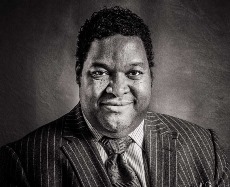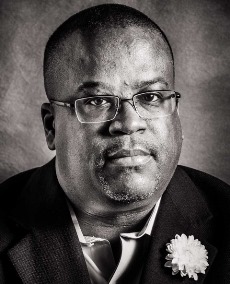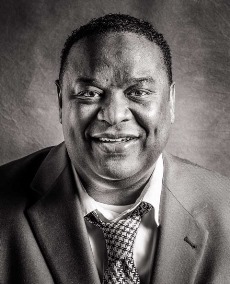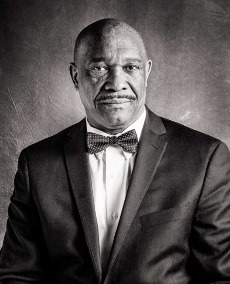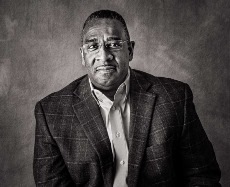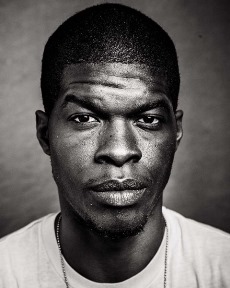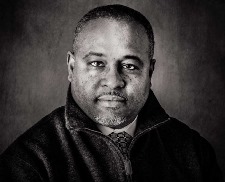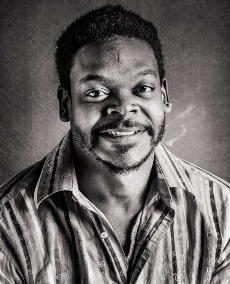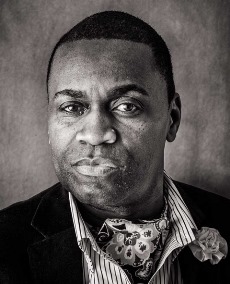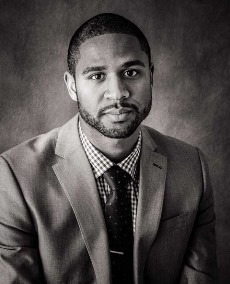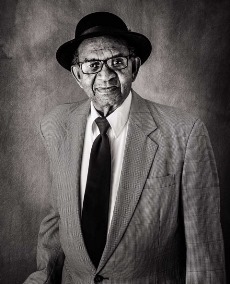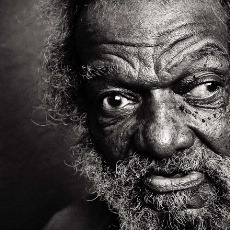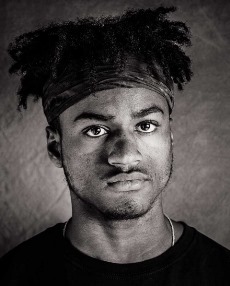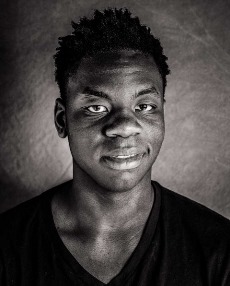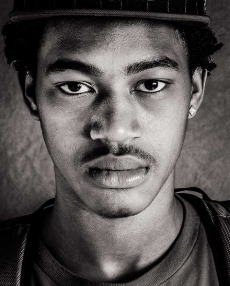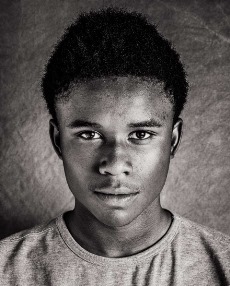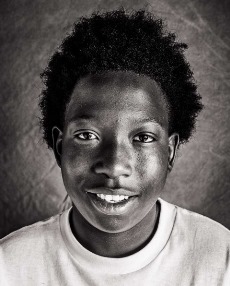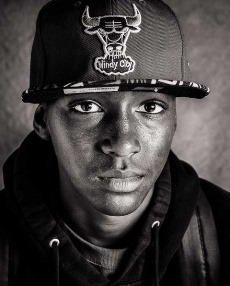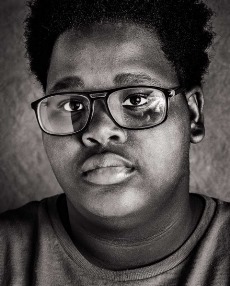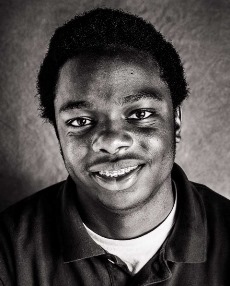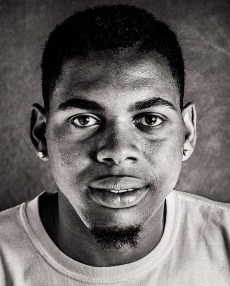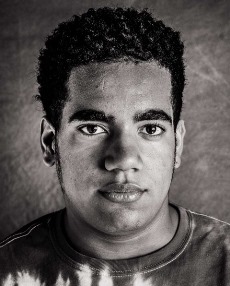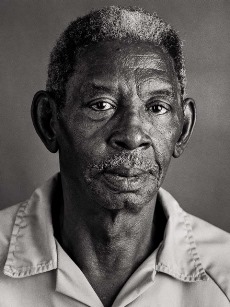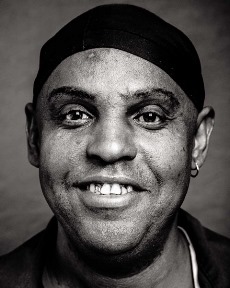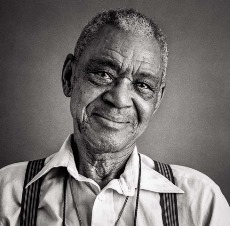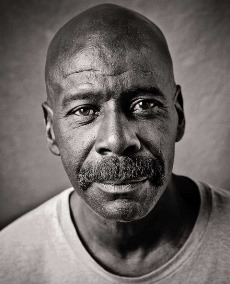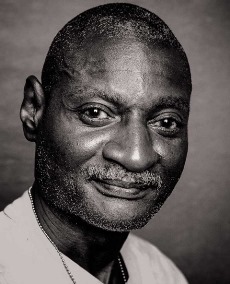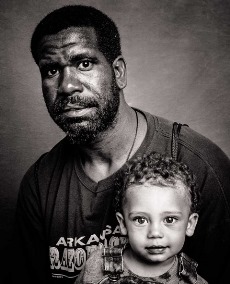Let There Be Light, 100 Black Men
The University Libraries, in collaboration with Andrew Kilgore and Compassion Fayetteville, are pleased to present 30 portraits from Let There Be Light, 100 Black Men.
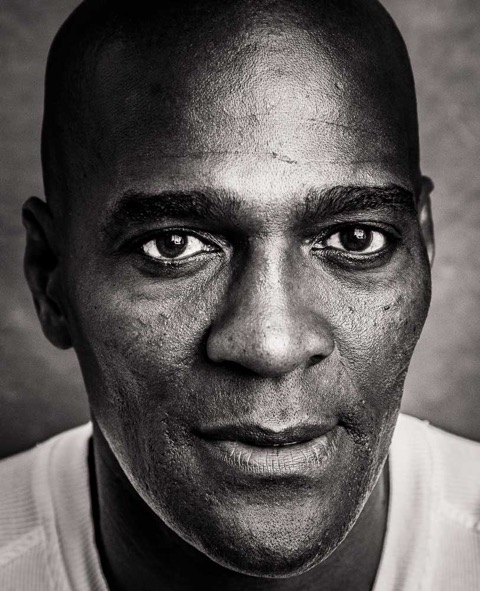
Let There Be Light, 100 Black Men is a major, ongoing project. Kilgore is photographing African-American males of all ages and backgrounds to create a “relatively accurate demographic representation of our country's African-American male population.” The portraits in this exhibit are hung without art labels, allowing the images to stand alone.
“I do not want to add any words, names, labels, verbal ideas, or political notions that might distract [the viewer] from a direct experience with each person pictured,” Kilgore said in his artist statement accompanying the exhibit. “My job is to work toward awakening the personal empathy that must come before any real consideration of social justice can be put into practice — to look deeply at real people before acting to create public policy."
This growing body of photographs presents the viewer with a contradiction — the photos represent a vital and important local community, a community that is at once highly stereotyped, but largely invisible. The portraits provide an opportunity for the viewer to gaze into the soul of the person photographed, helping to make black lives more relevant and visible, Kilgore said.
The goal of the exhibit helps support the mission of the Compassion Fayetteville Black History Team. Compassion Fayetteville Black History Team, as part of Compassion Fayetteville, works to promote the Black community as present, relevant, seen, and visible, and to celebrate and appreciate Black contributions made by Fayetteville citizens.
Compassion Fayetteville is a cooperative effort by a group of citizens who are volunteering their time to increase awareness, encourage, and promote a culture of compassion through identifying, supporting, and initiating new compassionate actions in Fayetteville, Pattie Williams said. Williams helped found the Compassion Fayetteville movement and is now serving on the Black History Team. “Fayetteville is one of a growing number of cities that have received the designation of International Compassionate City by Compassionate Action Network International,” Williams said.
Last February at Fayetteville Public Library, 20 photographs of African American students at Fayetteville High School West Campus were exhibited during Compassion Fayetteville Black History Month. Last February was the second year that Kilgore's project was highlighted during Compassion Fayetteville Black History Month, and each opportunity to show the work makes the images more visible.
Returning from the Peace Corps in 1968, Kilgore bought a camera and began taking pictures. He moved to Fayetteville a few years later to open a studio and taught photography at the U of A from 1973 to 1977. In 1981, Kilgore moved to Little Rock to produce a wide range of exhibit length projects, but he's been back in Fayetteville for over 25 years.
Kilgore is about a third of the way done with the portraits that will eventually comprise the complete Let There Be Light, 100 Black Men project. The project is currently stalled due to lack of funding. For more information about the project, or ideas on how to get involved, contact the artist through his website, andrewkilgore.com.
Mullins Library is open most days of the week and a full schedule of business hours is available online. For more information about hours, this exhibit, or about showing in Mullins Library, please contact Martha Guirl-Phillips at mlguirl@uark.edu or 479-575-6702.
Find more information at http://www.andrewkilgore.com/.
(Click thumbnail image to enlarge.)
